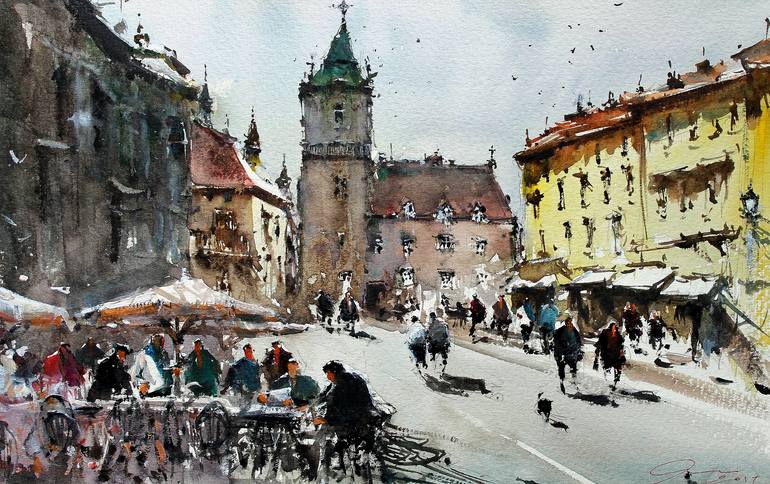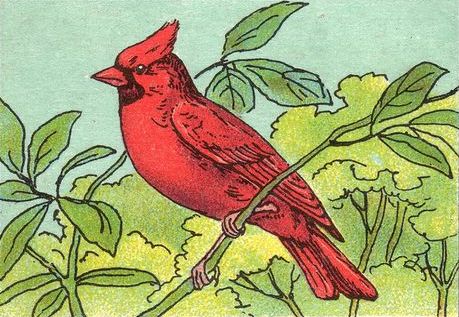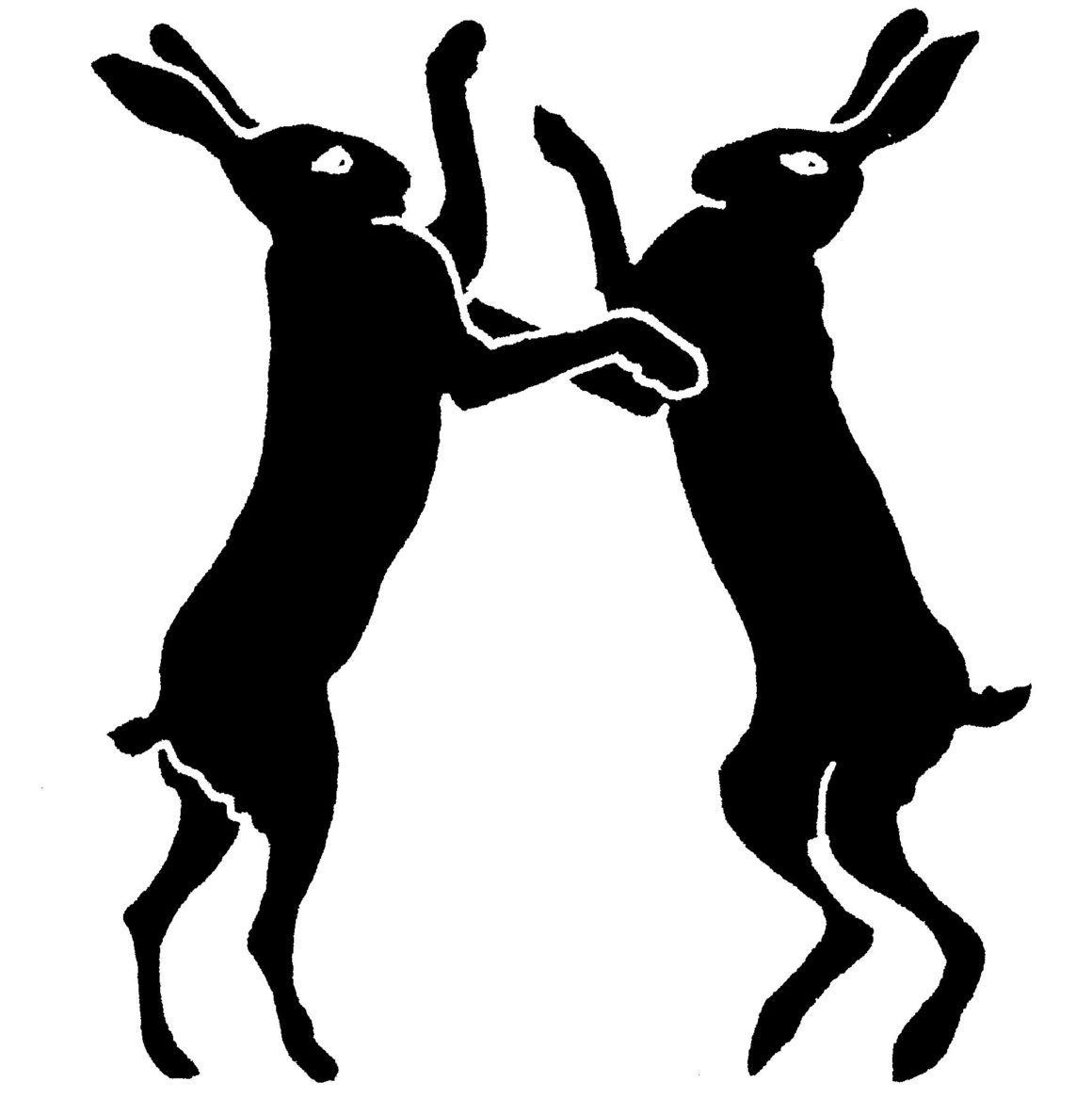On Federal Highway 200 Near Salina Cruz
It was late in the afternoon, and a gentle wind was pushing heat off the country when we found the man. Our traveling bicycle gang had split in two by this point — Robbie and I were riding ahead, and hadn’t seen Jamie or Alejandra for about an hour. We had just crested a hill and were celebrating with the usual hooting and ringing of bells when I spotted a figure sitting in a drain a little way off the road.
We often shared highway space with automobiles and pedestrians on this stretch of Oaxacan coast, and it was common to see sack-slung laborers trudging home, women promenading to the nearest bus stop, farmers resting atop rumbling tractors, even the odd shepherd strolling with his goats on the edge of the asphalt. So a man sitting alone on a reasonably remote patch of highway wasn’t especially remarkable — it was the fellow’s unsettling stillness that made me touch my brakes and look again.
There wasn’t much daylight left, and we still needed to find food and drinking water before embarking on our nightly game of “Where Are We Sleeping Tonight?” The thought of pedaling on and pretending I’d never seen him played in my mind until I saw Robbie watching me, his faltering Hilltop Grin broadcasting an awareness that something was up.
“There’s a man in the bushes,” I blurted, touching my brakes and planting a foot on the road.
Robbie stopped, squinting at the man through his sweat and then scanned the hillside above us, suddenly tense. Now that two of us had seen him, neither dared broach the option of riding away. I propped my bike in the gutter and walked slowly down the concrete drain, which ran at an angle off the highway. The breeze had cut out on the lee side of the hill, and there was no traffic. No birds gossiped in the thick scrub around us, stiff and leafless at the end of the dry season. The only sound came from the man’s feet shuffling around in the gutter.
Upon closer inspection, he was more of a kid than a man. His right eye had been swallowed by purple swelling and his right arm was covered in cuts, road rash and bruises. His right hand hung pale and stiff, apparently broken. Blood ran slick from his mess of a mouth and dripped into a wet stain in the crotch of his torn jeans. There was more blood in his hair and shining on his black t-shirt. I kept swearing, over and over. Rob warned not to get too close.
I asked for his name, where he was from, what had happened to him. I asked if he wanted water. He groaned, rocked back and forth. He tried to stand and fell over. A single shoe sat in there with the twigs, drifts of dry dirt and old Coke bottles. When he sat up again, he slipped the shoe on and off his foot with his good hand.
Jamie and Alejandra rolled up after a while, laid their bikes behind mine. Alejandra took over the questions.
“What’s your name?” she asked and then, softly, “Where’s your family?” He rocked some more and gave a wet sigh.
Jamie had trained as a physiotherapist, which gave him more medical knowledge than the rest of us combined. He crouched, clicked his fingers in the boy’s face and tried several of the Spanish phrases he knew until the boy became preoccupied with his shoe again. Jamie stood.
“If he can’t talk or tell us his name and age, that might indicate swelling in the brain,” he said. “He needs to get to hospital right away.”
This stirred the bike gang into action. Alejandra had the only working cell phone, but there was no signal. She and I spoke the best Spanish in the group, so we left the others with him and ventured up the road to wave down motorists.
Large pickup trucks are used as a kind of public transport on this southern leg of Highway 200. The driver shares his cab with a friend or elderly passenger while the rest stand in the back and hold on, and they commute to work, take their produce to market, keep doctor’s appointments and visit one another like this, up and down the coast. It was one of these that stopped first — two shiny, late-model sedans had swerved around us and driven on — and we begged the driver to take the boy to the nearest hospital. He had plenty of room in the back, where about ten passengers stared from the flatbed. Several women crossed themselves and one shut her eyes, began muttering a prayer. The driver shook his head.
As I tried to negotiate, two passengers piped up to say that they’d seen the boy in the same place when they’d passed by that morning. He’d been in a similar state then, they said. Now other passengers shook their heads. The praying woman’s brow tensed as she squeezed her eyelids shut and her prayers became louder and faster, as if someone had fiddled with knobs on a turntable.
“What’s the fucken holdup?” Jamie fumed once I’d translated, throwing a large arm in the direction of the idling truck, the watching passengers and glum driver. “What’s so hard about this? He needs to get to a hospital right now. It’s not rocket science.”
My voice shook a little as I offered a watered-down version of Jamie’s sentiments to the driver. I’d never seen anyone as badly hurt as this boy and I was scared of being left alone with him, of what might happen in the night. I was also convinced that, in a similar situation back in Australia, the first motorist along would’ve bundled him into their car and taken him directly to the nearest hospital. And eight months on the road in Canada, the United States and Mexico had taught me a rather obvious lesson: that people on this continent were generally inclined to do the same.
Since leaving Mexico City we had seen plenty of teenage boys draped and drowsing like lambs on piles of agave piñas or hay bales in the back of sooty trucks. We sometimes speculated about what might happen if a rowdy dream or typical Oaxacan pothole jostled one from his perch — it was possible, perhaps even likely, that this kid had fallen in his sleep. A patch of blood that Robbie had found baked onto the highway — along with the boy’s missing shoe — and the one-sided nature of his injuries suggested such an impact. If he’d been alone up there, or his companions were sleeping, nobody would have missed him for some time.
“If the police get involved, I don’t want any troubles for myself,” the driver of the pickup was saying. He looked at Alejandra. “You understand.” But he did promise to call an ambulance.
Then a stern, grey-haired woman in the flatbed spoke. She said that she, too, would call an ambulance, and something else: she would “dar parte.”
“It means she’s going to report this to the police,” Alejandra explained, watching her swaying in time with the other passengers as the pickup lurched away.
And then she said something that explained the curious air of resignation that had pervaded that truck, a ponderous shifting of feet and inspecting of fingernails that mocked our urgency.
“If somebody did this to him on purpose, it could be dangerous to help.” Alejandra shrugged her little shoulders. “You never know who might be watching.”
So here it was again, that shifting black cloud of violence Mexicans euphemistically called “la inseguridad.” We had never seen this violence in person. The closest we’d come was glimpses of its aftermath, and always relatively distant — bodies splayed on front pages of the Durango papers, mutterings of a “war” recently won and lost in an apparently tranquil Jalisco town — like smoky tendrils recoiling over the horizon. We never understood the direct causes of any individual death, or that alleged war, or the infamous disappearance of 43 college students en route to a demonstration in the state of Guerrero — plenty of faded banners still wondered “Where are the 43?” seven months after the fact — but no-one doubted their ultimate cause. This, of course, was the shifting trade routes that send criminalized narcotics north into the United States’ insatiable maw, the absurdly violent struggles over their control and the ripples of corruption and crime they create.
But the stories never felt real. While it was impossible to dispute that violence was occurring somewhere, it always felt far away — a dark smudge dancing just outside our field of vision. And everyone was so open and unguarded, so relaxed in one another’s company, so quick to invite strangers like us into conversation or even their homes. The lush forests and gorgeous coastline flanking the country’s mountainous spine, the high pastoral fields and dusky deserts rising to volcanic tumult as we pedaled south, the rambling toddlers and canoodling teenagers and happy pensioners in every plaza, the wry jokes and easy smiles — this was no war zone.
I turned and looked back at the boy, who was still shuffling in the gutter, and in my mind’s eye I saw a puff of black cloud brooding over his bowed head. It was unlikely that he had anything to do with smuggling, narcotraficantes, any of it. To the bike gang — three Australians and a chilanga from Mexico City — he was just a kid in need of urgent care. But to the passengers in the truck, he may or may not have been an example of what happened to those who crossed certain boundaries. The mere possibility of involvement by some thuggish form of authority — a local gang, highway bandits, perhaps even the police — was enough to pervert natural human decency.
A few more vehicles stopped over the next twenty minutes and though we could convince no-one to take him, we extracted several promises to call an ambulance once they found a phone signal.
Half an hour went by. Our friend — as we now called him — stopped his groaning and quieted down. Jamie caught him with his good eye closed, toppling to one side.
“We can’t let him sleep.” I heard fear in the big man’s voice as he held the boy up by his shoulders, the first time anyone had touched him. We stirred into action again.
Robbie and I took Alejandra’s phone, mounted our bikes and followed the highway east to find a cell signal and call an ambulance ourselves.
We sped off the hill, crossed a scrubby flat and then climbed toward a notch in another range running perpendicular to the coast. Beaches and headlands glowed below us, bordered by the inky ocean. As Robbie and I labored into the ascent a large, unfamiliar breed of black-and-yellow bird appeared in the air several feet off my shoulder. It winged quietly alongside for a few hundred meters, stopping in a tree every now and then to let us catch up. I pushed harder on the pedals.
At some point during this prolonged sprint, my 11,000th kilometer out from Vancouver came and went unnoticed. Motion felt useful, and it felt good to be useful. Now, between hoping that our winged companion wasn’t some messenger from the kid’s newly departed soul — and checking Alejandra’s phone for a signal — I now found myself thinking that, for the first time, I was on an adventure of real consequence. Had he known that his medical emergency had inserted the first ever moment of life-and-death drama to some pampered foreigner’s life, our friend would almost certainly not have been impressed. But I focused on the task at hand, and ignored an inner surge of excitement at being swept up in events bigger than some contrived challenge of my own making.
Robbie stayed by the highway while I rushed along a dirt road to a village called Zonjal, nestled at the foot of the range. I ditched my bike in the dusty main street and ran into a store to brief the señora inside and enlist her help. She phoned the police in Salina Cruz, a small city to the east, and they assured her that they would send an ambulance.
I bought snacks and bottles of cola, then pedaled back out of town. Robbie and I sat beneath a parota tree, watched sunbeams streaking overhead as the bush darkened around us, and waited.
The ambulance, when it arrived, was a van mounted with flashing lights speeding up toward the pass. Minutes later, a second ambulance flashed by. Someone had called after all. The ambulances soon rushed back toward Salina Cruz together and through the rear window of the first we could see a paramedic working away at what we assumed was our friend.
It was dark by the time Jamie and Alejandra joined us. With permission from the señora who had made the phone call, we made our camp on the basketball court at Zonjal’s small primary school. We cooked our usual bean taco feast with all the fixings and drank beers to belatedly celebrate the 11,000th kilometer I had ridden earlier in the afternoon, but it was a subdued night for the usually raucous bike gang. Before they’d taken him away, the paramedics had told Alejandra that our friend would be treated at the civil hospital in Salina Cruz. But when she called the next day the hospital refused to give any news without proof that she was family, and we didn’t even know his name.
It took another two days of sweaty riding to reach Salina Cruz, a scalding hot and treeless port town where we stopped in the central plaza to gorge on tlayudas and cold aguas frescas. We took turns watching the bikes and fielding the usual questions from curious townsfolk (“Where did you start?” “How much does the bike weigh?”) while the others sat in an internet cafe sifting through emails, social media notifications and Couchsurfing requests. We also looked for references to our friend in the local media, but found nothing. We did find the hospital’s website but the listed address was across town, out of our way. Then we found a cinema, which wasn’t out of our way, and suddenly the prospect of two hours’ worth of popcorn, fizzy drink, air-conditioning and superhero adventures overrode all other plans.
“What are we going to do, anyway?” Robbie asked reasonably. “Have him say ‘Thank-you?’ And that’s if they let us see him in the first place.”
So we left Salina Cruz and found the cinema in a mall outside town. The sun was low when the movie finished, so we asked a security guard to let us camp on a patch of dreamily soft turf at the edge of the parking lot. With clean bathrooms and an air-conditioned supermarket nearby, the spot promised luxury urban camping at its finest.
“All I ask is a little something for a drink,” the guard replied.
This turn of phrase confused me, and I looked to Alejandra for an explanation. “¿Algo por el refresco?” I repeated, but she was already reaching for her wallet.
The guard, who called himself “Chinksy,” asked that we refrain from building our tents until the mall closed at 10 p.m., so we loafed in the parking lot cooking dinner and drinking beer. We talked about the beach we’d camped on the previous night and the sea turtles we’d seen there, about the mountains that waited for us in Chiapas, several days ahead. We told Alejandra to call in sick for another week, to forget about Mexico City and ride on with us into Guatemala and beyond, and through it all she said nothing, just laced her fingers in front of her and sighed, grinning. When we didn’t let up, she changed the subject.
“Guys,” she said, looking each of us in the eye in turn. “Back before Zonjal. With our friend. We did something amazing that day.”
“Maybe,” Jamie said in a small voice, exhaling smoke and tapping his cigarette into the gutter. “Fuck I hope he’s okay. I mean, what if he really was involved in… something? It’d be almost like we were just delaying the inevitable.”
“Whether or not he did anything is beside the point,” Robbie said evenly. “The fact is, he was incredibly lucky we saw him. For whatever reason — and I’m sure they had their reasons — nobody else felt like they could help him. But we could. And we did.” He reached over and took the cigarette from Jamie, whose unfocused eyes bored into the gutter between his knees. “Maybe he made decisions that got him into that mess, maybe not, I don’t know,” Robbie went on. “I don’t think it matters, to be honest. And what I do know is that we got him out of immediate danger. I think it’s fair to say we saved his life.”
To me, the whole affair was ancient history by now. Bicycle touring has the habit of packing so many small adventures into short spaces of time that days tend to feel like weeks. I’d seen some beautiful things since Zonjal — starlit beaches, turtles, the coming mountains looming up ahead — but I only remembered looking at them for a while, as if in a museum, and then pedaling away.
Later, once the parking lot had cleared out, Jamie and I held jousting competitions to prove the nimble bicycle’s superiority over the clumsy shopping cart.
“C’mon, guys,” Chinksy complained. “Don’t make me lose my job over this.”
“No mames, Chinksy,” we taunted. “You need another refresco, or what?”





